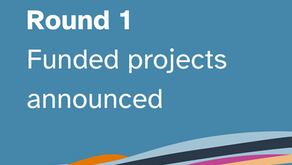NDRP Guiding Principles
- Apr 30, 2021
- 2 min read
Updated: May 27, 2021
These principles draw on the human rights framework articulated in the United Nations Convention on the Rights of Persons with Disabilities.
NDRP is committed to research which recognises the whole life experience and contexts in which people are born, grow, live, work, age and die, and the wider set of forces and systems shaping the conditions of their daily life. We recognise and acknowledge that people with disability come from many different backgrounds and communities and represent the rich diversity of human experiences and perspectives.
The NDRP also acknowledges that some people with disability face barriers in communicating their goals and aspirations and making decisions. This may include people with cognitive disability, young children, or others with episodic disability such as mental illness. In these circumstances the NDRP acknowledges the role that family, caregivers, allies or supporters may play in supporting decision making and facilitating expression of preference and will.
The NDRP also acknowledges that many people with disability identify with multiple marginalised groups and may experience intersectional disadvantage because of gender, race, ethnicity, sexual preference, age and location. When people with disability experience intersectional disadvantage there are even fewer opportunities to access to services, ordinary community activities, decision making or political and economic participation.
Principles
1. Deliver high quality, collaborative research
Become a world-leading driver of disability research that builds an evidence base
Advance disability research in Australia by delivering on the national disability research agenda
Draw on expertise across Australia through collaborative research teams
Collaborative approach to finessing research questions.
2. Recognising and valuing the knowledge of people with disability in research
Research ‘by’ and ‘with’ people with disability
Research that addresses the priorities of people with disability as outlined in the national disability research agenda.
Research which specifically addresses people with disability who:
require support to express their will and preference, and to implement their decisions
experience intersectional disadvantage
Genuine, paid for, co-design with people with disability
3. Valuing all forms of knowledge
Valuing knowledge creation from many different sources
Knowledge that is accessible to the community: including journal articles, podcasts, videos and easy read summaries
Australian policy will be informed by research and evidence
4. Building research capability
Build a vibrant, connected and thriving disability research ecosystem
Create career pathways and targeted support for researchers with disability
Build capacity of the disability sector to create and use knowledge
.png)









